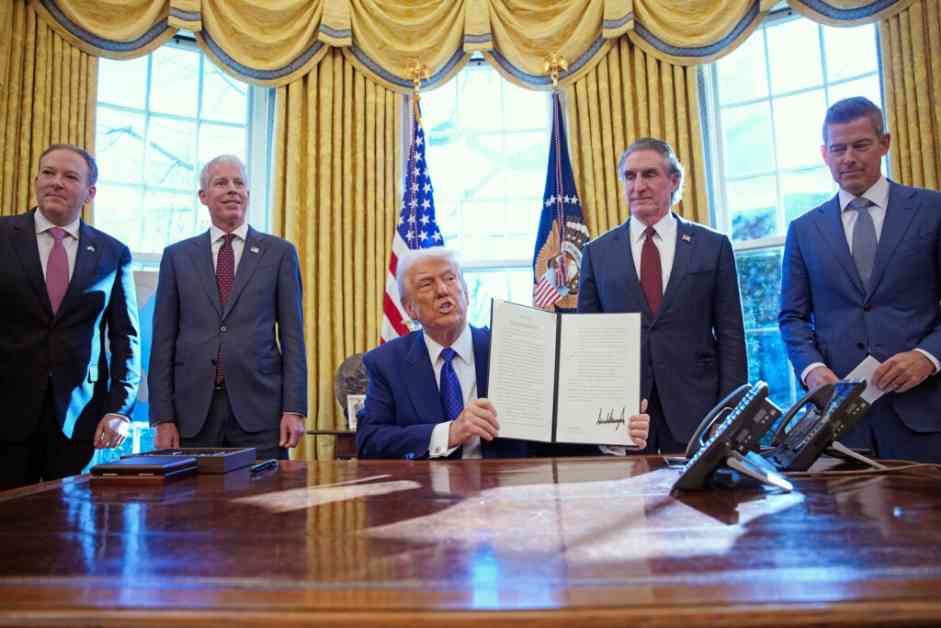Trump Administration Under Fire for Freezing Climate Justice Programs
The Trump administration’s controversial freeze on federal funding for climate, energy, and environmental justice programs has sparked outrage and legal battles. Despite two federal court orders demanding the resumption of distributing grants and loans, over $19 billion in Environmental Protection Agency (EPA) funding remains on hold, leaving state and local governments, as well as nonprofits, in limbo.
EPA Administrator Lee Zeldin’s decision to halt the distribution of an additional $20 billion from the Greenhouse Gas Reduction Fund program has raised concerns about the administration’s motives. Zeldin’s call for a Department of Justice investigation into what he describes as a rush job with reduced oversight has been met with criticism from environmental advocates.
The Greenhouse Gas Reduction Fund, also known as the “green bank” program, was developed over a year in collaboration with the Treasury Department to establish a standard financial agent arrangement. The delay in funding distribution has left grantees across the country facing uncertainty and disruptions in crucial environmental, resilience, and community improvement programs authorized by Congress.
Impact on Communities
The funding freeze has had a real impact on communities, with programs related to clean drinking water, air monitoring, hurricane recovery, and electric school buses all on hold. Grantees, such as nonprofit organizations and local governments, are struggling to access funds and continue their work to support vulnerable populations, particularly in areas affected by natural disasters.
One such organization, MDC in North Carolina, was set to receive a $3 million grant for disaster recovery and resilience programs in Latino communities. The interruption in funding has hindered their ability to provide essential services to populations still recovering from past hurricanes.
Legal and Political Ramifications
Legal experts and advocacy groups are closely monitoring the situation, highlighting the Trump administration’s attempts to label programs as fraudulent without concrete evidence. The courts have intervened with temporary restraining orders, but the ongoing uncertainty surrounding the funding freeze poses challenges for grant recipients and the communities they serve.
Critics argue that the administration’s actions are politically motivated, targeting environmental justice and climate programs under the guise of fiscal responsibility. The future of these vital programs hangs in the balance, with grantees facing potential layoffs, project cancellations, and community service disruptions.
As the legal battle unfolds, the fate of environmental justice programs, clean energy initiatives, and climate resilience efforts remains uncertain. The impact of the funding freeze extends beyond financial considerations, affecting the lives and well-being of communities across the country.
In conclusion, the Trump administration’s controversial decision to halt funding for climate justice programs has ignited a fierce debate over the future of environmental protection and community resilience. The ongoing legal challenges and political tensions surrounding the freeze underscore the importance of upholding commitments to environmental justice and climate action, even in the face of administrative changes and policy shifts.














